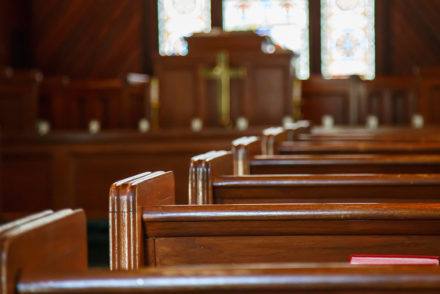Note: This blog is the fourth in a year-long series of posts on the parables of Jesus. The series will run through most of 2019. You can find the first blog on the parables HERE.
Last month we looked at the Parables of the Weeds and the Nets. This month we are still going to be in Matthew 13, but we are leaving the parables of judgment behind and are looking at two of the more optimistic “parables of the kingdom.” The Parables of the Mustard Seed and the Leaven are parables that teach that though the kingdom looks small and insignificant right now, take heart. The kingdom will grow into something surprisingly great and mighty. We will deal briefly with these two parables below using the same four questions we have been using to analyze all the parables.
Question 1: What are the immediate circumstances of these parables?
Remember, the parables of Jesus aren’t isolated sayings without a history or a context. The question, “Why did Jesus tell them this story?” is a vitally important question. “Why is Matthew telling us this story in his Gospel?” is an equally vital question. When we look carefully at Matthew 13 we can see that Matthew has put together a half-dozen parables to teach us about the Kingdom of God. Jesus and Matthew are answering some important questions we should have about the Kingdom of God by the time we reach Matthew 13. The Parable of the Sower, for example, answers the question: “Why is it that the people who should know God the most—the Jews, especially the Pharisees—were the ones most staunchly opposed to Jesus?” The Parable of the Mustard Seed and the Leaven, however, answer two other very important questions raised by Matthew: “What is the Kingdom of God like?” and “Why doesn’t the Kingdom of God look like we expect it to look?”
It is not hard to imagine why Jesus’ hearers and Matthew’s readers would ask such questions. The kingdom of God had such inauspicious beginnings as to be almost unrecognizable to the people in Jesus’ day. God had come to earth, but he had come in the person of a peasant itinerate preacher. God was establishing his kingdom, but he was establishing it among the poor, the outcast, and the sinner. God was going to save his people, but he was going to save them, not by political or economic conquest, but by dying. That is not at all what they had imagined God would do.
Question #2: What are the structures of these parable?
Like the other parables in the second half of Matthew 13, these short parables have mostly a story structure: a mustard seed grows and leaven leavens a loaf of bread. What happens in each parable is exactly what the audience would expect to happen. In fact, as with the previous parables, it is in the obvious outcomes of these parables that the spiritual truth lies. Of course seeds start small and grow. That’s what they do. And, of course, leaven spreads throughout the loaf and causes it to rise. That’s what leaven does. That’s why these parables have the structure they do.
Question #3: Is there anything in the details of the parable modern readers need to understand?
In the Parables of the Mustard Seed and the Leaven Jesus is giving examples of things that are relatively small but that grow surprisingly large. He calls the mustard seed the smaller of all the seeds. Jesus didn’t intend to indicate that the mustard seed is the smallest seed in the history of seeds. It isn’t, and Jesus knew of seeds smaller than a mustard seed. He is using hyperbole (exaggerating to make a point): “Do you see this tiny little seed? Isn’t it the smallest little thing you’ve ever seen? Look how big it grows!” In the same way, a pinch of leaven is tiny in comparison to the size of a loaf of bread. But it will spread throughout the entire loaf, making it all rise.
Question #4: What are the meanings of the parables?
Taking all of the above into account, we can arrive at an answer to our questions: “What is the Kingdom of God like?” And “Why doesn’t the Kingdom of God look like we expect it to look?”
The disciples must have really struggled with Jesus’ humble beginnings and how little success he seemed to have in his earthly ministry. Jesus raised the dead in front of a large crowd and then, not all that much later, had nearly everyone in Jerusalem shouting at him, “Crucify him! Crucify him!” This is clearly not what messianic Jews in Jesus’ day expected.
In spite of this Jesus wants his disciples to understand what the kingdom is really like. Like a tiny seed or a small pinch of leaven, the kingdom starts out very small, with a very poor family, in a very obscure part of the world. But one day the kingdom of God is going to fill the whole earth.
Those of us living on this side of the cross should keep this in mind as well. Turn on the news and you will see both the state of the world and the state of “institutional” Christianity. It can be quite dismaying. But don’t lose heart. God’s kingdom is here after all. He plans to grow it until it fills the whole earth at the second coming. How will it fill the whole earth? It won’t be because the world becomes Christian or because governments begin to pursue righteousness and godliness. The Scripture indicates that just the opposite will happen in the last days. The kingdom of God will fill all of the earth when the gospel goes to all the nations. As Jesus himself said, “And this gospel of the kingdom will be proclaimed throughout the whole world as a testimony to all nations, and then the end will come” (Matthew 24:14).
Let’s not miss the most important part of this extraordinary truth. We get to be a part of the growth of God’s kingdom! We don’t grow the kingdom by passing laws or by voting. We don’t grow the kingdom by patriotism or by military action. We grow the kingdom of God when we obey Christ and go to the nations to preach the good news of the kingdom to all who will listen.





